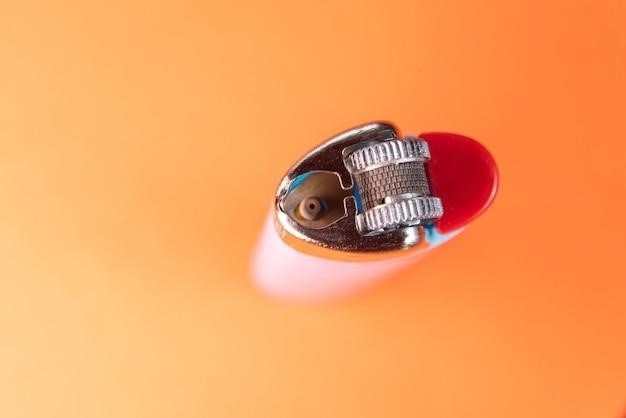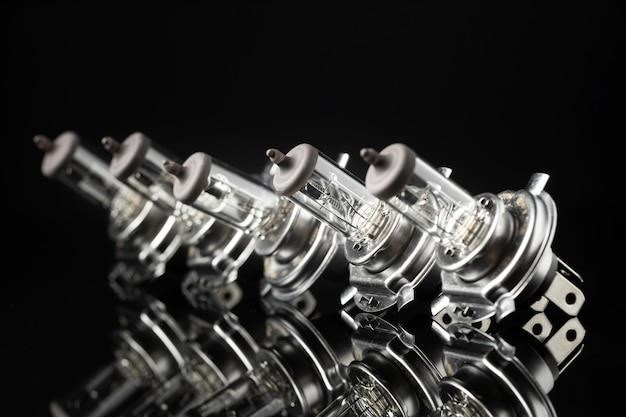
2003 Honda Civic Manual Transmission⁚ A Comprehensive Overview
The 2003 Honda Civic, known for its reliability and fuel efficiency, was offered with a variety of transmission options, including a five-speed manual. This manual transmission, paired with the Civic’s peppy engine, provided a rewarding driving experience. However, even with Honda’s reputation for quality, the 2003 Civic manual transmission has seen its share of problems. This guide will delve into the common issues, maintenance tips, and other factors related to the 2003 Honda Civic manual transmission.

Introduction
The 2003 Honda Civic, a staple of the compact car segment, has garnered a reputation for its reliability and fuel efficiency. This reputation is partly attributed to the robust and enjoyable driving experience offered by the five-speed manual transmission available in many models. The manual transmission, coupled with the Civic’s responsive engine, provided a spirited and engaging driving experience for many enthusiasts. However, even with Honda’s renown for quality, the 2003 Civic manual transmission has encountered its fair share of problems. These issues, while not ubiquitous, can significantly impact the vehicle’s performance and longevity. This comprehensive guide will delve into the common transmission problems, preventative maintenance practices, and other key aspects related to the 2003 Honda Civic manual transmission. Understanding these points will empower owners to identify potential issues, address them effectively, and extend the life of their transmissions.
Common Transmission Problems
The 2003 Honda Civic manual transmission, while generally reliable, has been known to experience certain issues. One recurring problem involves the input shaft bearing. This bearing, located inside the transmission case, can wear out, producing a noise that increases with engine speed. The noise often disappears when the clutch is depressed. Another issue reported by owners is a grinding sound during gear changes, particularly when shifting into second gear. This could be caused by a worn synchronizer, a component responsible for matching the engine and transmission speeds during gear changes. Furthermore, some owners have encountered problems with the clutch itself, leading to slipping or a loss of engagement. This can be due to worn clutch plates, a faulty hydraulic system, or a damaged pressure plate. While these problems are not universal, they are common enough to warrant awareness and prompt attention. Addressing these issues early can prevent further damage and extend the lifespan of the transmission.
Transmission Fluid and Maintenance
Proper maintenance is crucial for ensuring the longevity of a manual transmission. The 2003 Honda Civic manual transmission requires regular fluid changes to maintain optimal performance. Honda recommends using a high-quality, synthetic manual transmission fluid (MTF) specifically designed for manual transmissions. The recommended interval for fluid changes varies depending on driving conditions and usage. However, a general guideline is to change the fluid every 30,000 to 50,000 miles. During a fluid change, the mechanic should also inspect the transmission for any signs of leaks, wear, or damage. It’s also important to check the fluid level regularly and top it off as needed. A low fluid level can lead to overheating and premature wear on the transmission components. In addition to fluid changes, other maintenance tasks include inspecting the clutch system for wear and tear, ensuring proper clutch adjustment, and lubricating the shift linkage. Following a regular maintenance schedule can help prevent major transmission problems and ensure smooth, reliable operation for years to come.
Symptoms of a Failing Transmission
Recognizing the warning signs of a failing transmission is crucial for preventing further damage and costly repairs. The 2003 Honda Civic manual transmission, like any other, can experience a range of symptoms that signal a potential problem. One of the most common signs is difficulty shifting gears. This could manifest as grinding noises, a feeling of resistance, or the inability to shift into a particular gear. Another symptom is a slipping clutch. This occurs when the clutch doesn’t engage fully, causing the engine to rev without transferring power to the wheels. Additionally, a leaking transmission can indicate a problem with the seals or gaskets. Other symptoms include a burning smell, unusual noises during driving, or a jerking or shaking sensation when accelerating. If you experience any of these symptoms, it’s best to have your transmission inspected by a qualified mechanic as soon as possible. Ignoring these warning signs can lead to more significant damage and ultimately, a costly transmission replacement.
Troubleshooting and Repair
Troubleshooting a 2003 Honda Civic manual transmission problem involves a systematic approach to pinpoint the root cause. A thorough inspection is essential, starting with checking the transmission fluid level and condition. Low or contaminated fluid can lead to various issues. Next, examine the clutch system for wear or damage. A worn clutch disc or pressure plate can cause slippage. Inspecting the transmission mount for looseness or damage is also crucial. A loose mount can cause vibrations and noise. If the problem persists, a mechanic may use a diagnostic tool to scan for any error codes. These codes can provide valuable insights into the fault. Once the cause is identified, the appropriate repairs can be made. Common repairs include replacing the clutch, transmission fluid, or even the entire transmission. Repairing a manual transmission can be complex and requires specialized tools and expertise. It’s highly recommended to consult a reputable mechanic with experience working on Honda Civics to ensure a proper diagnosis and repair.
Transmission Replacement
In some cases, repairing a 2003 Honda Civic manual transmission may not be feasible or cost-effective, especially if the damage is extensive. In such situations, a transmission replacement might be the only viable option. Replacing the transmission is a major undertaking that requires specialized tools and expertise. It involves removing the old transmission, installing a new or remanufactured unit, and ensuring proper alignment and fluid levels. Before opting for a replacement, it’s essential to consider the costs involved. A new transmission can be expensive, while a remanufactured unit might be a more affordable alternative. The choice between a new or remanufactured transmission depends on budget and the overall condition of the vehicle. It’s also crucial to source a transmission from a reputable supplier to ensure quality and reliability. The replacement process can be time-consuming, requiring several hours or even days depending on the complexity of the job. Therefore, it’s advisable to plan ahead and book an appointment with a qualified mechanic for the replacement procedure.
Manual Transmission vs. Automatic Transmission
The 2003 Honda Civic offered both manual and automatic transmission options, each with its own advantages and drawbacks. Manual transmissions provide a more direct connection between the driver and the engine, allowing for greater control over gear changes and acceleration. They are generally more fuel-efficient than automatics, especially in city driving. However, manual transmissions require more driver input and can be more challenging to operate, particularly for novice drivers. Automatic transmissions, on the other hand, offer convenience and ease of use. They automatically shift gears, eliminating the need for clutch operation. While automatics may be slightly less fuel-efficient than manuals, their convenience and smooth shifting make them a popular choice for many drivers. Ultimately, the choice between a manual and automatic transmission depends on individual preferences and driving habits. Those seeking a more engaging and fuel-efficient driving experience may opt for a manual transmission, while those who prioritize convenience and ease of use may prefer an automatic.
Transmission Lifespan and Longevity
The lifespan of a manual transmission in a 2003 Honda Civic can vary significantly depending on several factors, including driving habits, maintenance practices, and overall vehicle condition. With proper care and regular maintenance, a Honda Civic manual transmission can easily last well over 100,000 miles. Some owners report their transmissions lasting even longer, surpassing 200,000 miles. However, neglecting routine maintenance can shorten the transmission’s lifespan. Factors like harsh driving conditions, frequent heavy towing, and neglecting fluid changes can contribute to premature wear and tear on the transmission components. It’s important to note that while Honda Civics are known for their reliability, even well-maintained transmissions can experience issues over time. As the transmission ages, components like bearings, seals, and synchronizers can wear out, potentially leading to shifting problems or even complete failure. Regular inspections and maintenance are crucial for ensuring the longevity of your 2003 Honda Civic manual transmission.
Tips for Extending Transmission Life
Extending the lifespan of your 2003 Honda Civic manual transmission involves a combination of responsible driving habits and proactive maintenance. Here are some key tips to help keep your transmission running smoothly for years to come⁚
- Regular Fluid Changes⁚ Manual transmissions, unlike automatics, don’t require frequent fluid changes. However, it’s still essential to check the fluid level regularly and replace it as recommended by the manufacturer. Dirty or low fluid can lead to friction and premature wear.

- Warm Up the Transmission⁚ Before driving aggressively, allow the transmission to warm up for a few minutes, especially in cold weather. This helps the fluid reach optimal viscosity, reducing friction and wear.
- Avoid Harsh Shifting⁚ Avoid abrupt shifting and excessive revving, especially when starting from a standstill. Smooth shifting is crucial for minimizing stress on the transmission components.
- Avoid Towing Heavy Loads⁚ While the 2003 Civic manual transmission can handle moderate towing, avoid consistently towing heavy loads. Excessive stress can shorten the transmission’s lifespan.
- Listen for Unusual Noises⁚ Pay attention to any unusual noises or grinding sounds coming from the transmission. These could be early warning signs of a problem.
By following these tips, you can significantly increase the chances of your 2003 Honda Civic manual transmission lasting for many miles to come.
The 2003 Honda Civic manual transmission, while generally reliable, can experience problems like input shaft bearing failure, torque converter issues, and shifting difficulties. Understanding these potential problems and implementing proactive maintenance practices can significantly extend the life of your transmission. Regular fluid changes, proper warm-up procedures, and avoiding harsh driving habits are essential for keeping your transmission healthy. While the 2003 Civic manual transmission is known for its durability, it’s important to be aware of potential issues and take preventative measures. With proper care, your 2003 Civic manual transmission can provide many years of reliable and enjoyable driving.


